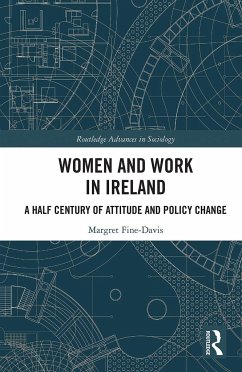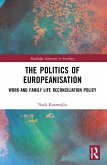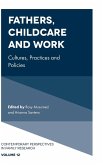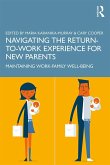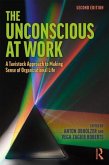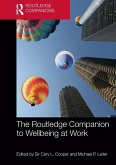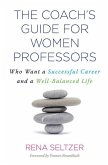This book chronicles the evolution of women's participation in the labour force in Ireland over the last five decades. This was largely spearheaded by married women and mothers, leading to many related social issues including childcare, flexible working, the sharing of domestic work and work-life balance. The book presents empirical data on these topics, drawn from the author's research spanning several decades, and shows how attitudes have evolved and influenced the development of social policy.
The book begins by exploring the factors which predisposed some married women to enter the workplace in the early 1970s while most did not and examines the relative well-being of housewives and employed married women. It demonstrates the effects the anti-discrimination legislation of the 1970s had on women's perceived discrimination over time, showing that women initially denied their own discrimination. The history of childcare policy is examined from the early Government Working Party reports of the 1980s to the evolution of childcare policy in Ireland. Issues of work-life balance are presented through cross-cultural comparisons from Ireland and several European countries, and key questions are asked, such as "are men who work part-time seen as less serious about their careers?" The concluding chapter focuses on how women's role in the workplace impacts on men and gender relations. Questions are posed concerning the ways in which men's roles need to adapt and the extent to which workplaces and social policy also need to change to accommodate men and women's needs for work-life balance.
The book will be of interest to social scientists and to students. It will be a valuable resource for courses in the sociology of work and the family, gender studies, social psychology and Irish studies. By providing quantitative data in an accessible form, it will also provide a valuable case study for courses in social research methods.
The book begins by exploring the factors which predisposed some married women to enter the workplace in the early 1970s while most did not and examines the relative well-being of housewives and employed married women. It demonstrates the effects the anti-discrimination legislation of the 1970s had on women's perceived discrimination over time, showing that women initially denied their own discrimination. The history of childcare policy is examined from the early Government Working Party reports of the 1980s to the evolution of childcare policy in Ireland. Issues of work-life balance are presented through cross-cultural comparisons from Ireland and several European countries, and key questions are asked, such as "are men who work part-time seen as less serious about their careers?" The concluding chapter focuses on how women's role in the workplace impacts on men and gender relations. Questions are posed concerning the ways in which men's roles need to adapt and the extent to which workplaces and social policy also need to change to accommodate men and women's needs for work-life balance.
The book will be of interest to social scientists and to students. It will be a valuable resource for courses in the sociology of work and the family, gender studies, social psychology and Irish studies. By providing quantitative data in an accessible form, it will also provide a valuable case study for courses in social research methods.
"Over the last half century social scientists throughout the Western world have studied women's participation in the paid labor force, along with its antecedents, correlates, and consequences. In this exemplary monograph, one of Ireland's leading scholars focuses the spotlight on her adopted country, Eire, sharing with us both the methods and the findings of five decades of meticulous survey research."
Faye J. Crosby, Distinguished Professor of Psychology Emerita, University of California, Santa Cruz
"In this fascinating book, M. Fine-Davis, a top scholar in the field of European social policies, brilliantly demonstrates how and why women's roles and status have so dramatically been changing in Ireland from the 1970s onwards. She adopts a systemic approach and underlines the catalytic effect of EU membership and the key role played by the women's movement. Based on a rich set of data, this book also provides a rigorous analysis of how social attitudes, trends in women's labour force participation and developing social policy intersected. In the end, a must-read book for academics and their students working in these fields."
Jeanne Fagnani, Emeritus Senior Research Fellow, National Centre for Scientific Research (CNRS-University of Paris 1, Sorbonne)
"This book tells a well-evidenced story of five decades of change in women's participation in the Irish labour force, from the 1970s onwards, and unpacks the ramifications for workplace discrimination, women's well-being, childcare and the division of labour. It provides a fascinating case study of how Irish social policy plays catch-up with changing behaviours and attitudes and demonstrates Ireland's ongoing, albeit uneven, progress in casting off the patriarchal legacy that limits equality for women and work."
Jacqueline Scott, Emerita Professor of Empirical Sociology, University of Cambridge
"Drawing on an extensive range of data, Margret Fine-Davis rigorously examines the evidence as regards continuities and changes in attitudes, patterns and policies around women and paid work in Ireland from the 1970s to the present day, locating these in an international context. There have been many welcome changes (not least the ending of the Marriage Bar in the 1970s). But this book also documents disquieting continuities including an inadequate child care system and substantial inequalities in the distribution of domestic tasks and child care: such continuities being very much in evidence in the COVID-19 situation."
Pat O'Connor, Professor Emeritus of Sociology and Social Policy, University of Limerick and Visiting Professor, Geary Institute, University College Dublin
Faye J. Crosby, Distinguished Professor of Psychology Emerita, University of California, Santa Cruz
"In this fascinating book, M. Fine-Davis, a top scholar in the field of European social policies, brilliantly demonstrates how and why women's roles and status have so dramatically been changing in Ireland from the 1970s onwards. She adopts a systemic approach and underlines the catalytic effect of EU membership and the key role played by the women's movement. Based on a rich set of data, this book also provides a rigorous analysis of how social attitudes, trends in women's labour force participation and developing social policy intersected. In the end, a must-read book for academics and their students working in these fields."
Jeanne Fagnani, Emeritus Senior Research Fellow, National Centre for Scientific Research (CNRS-University of Paris 1, Sorbonne)
"This book tells a well-evidenced story of five decades of change in women's participation in the Irish labour force, from the 1970s onwards, and unpacks the ramifications for workplace discrimination, women's well-being, childcare and the division of labour. It provides a fascinating case study of how Irish social policy plays catch-up with changing behaviours and attitudes and demonstrates Ireland's ongoing, albeit uneven, progress in casting off the patriarchal legacy that limits equality for women and work."
Jacqueline Scott, Emerita Professor of Empirical Sociology, University of Cambridge
"Drawing on an extensive range of data, Margret Fine-Davis rigorously examines the evidence as regards continuities and changes in attitudes, patterns and policies around women and paid work in Ireland from the 1970s to the present day, locating these in an international context. There have been many welcome changes (not least the ending of the Marriage Bar in the 1970s). But this book also documents disquieting continuities including an inadequate child care system and substantial inequalities in the distribution of domestic tasks and child care: such continuities being very much in evidence in the COVID-19 situation."
Pat O'Connor, Professor Emeritus of Sociology and Social Policy, University of Limerick and Visiting Professor, Geary Institute, University College Dublin

